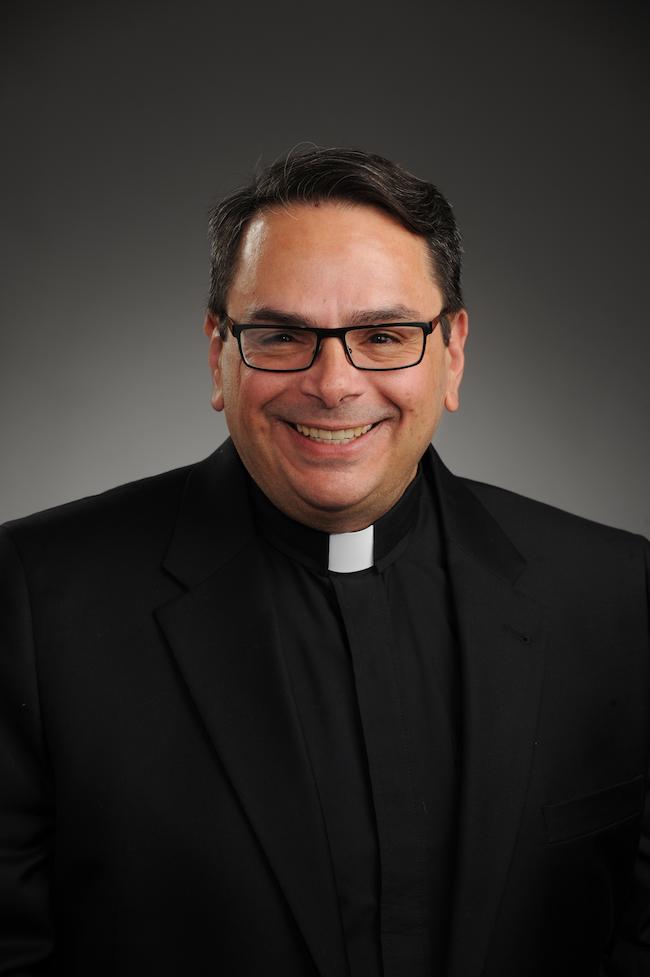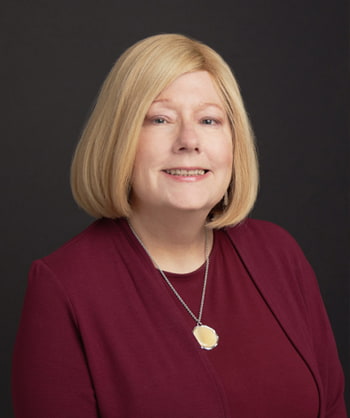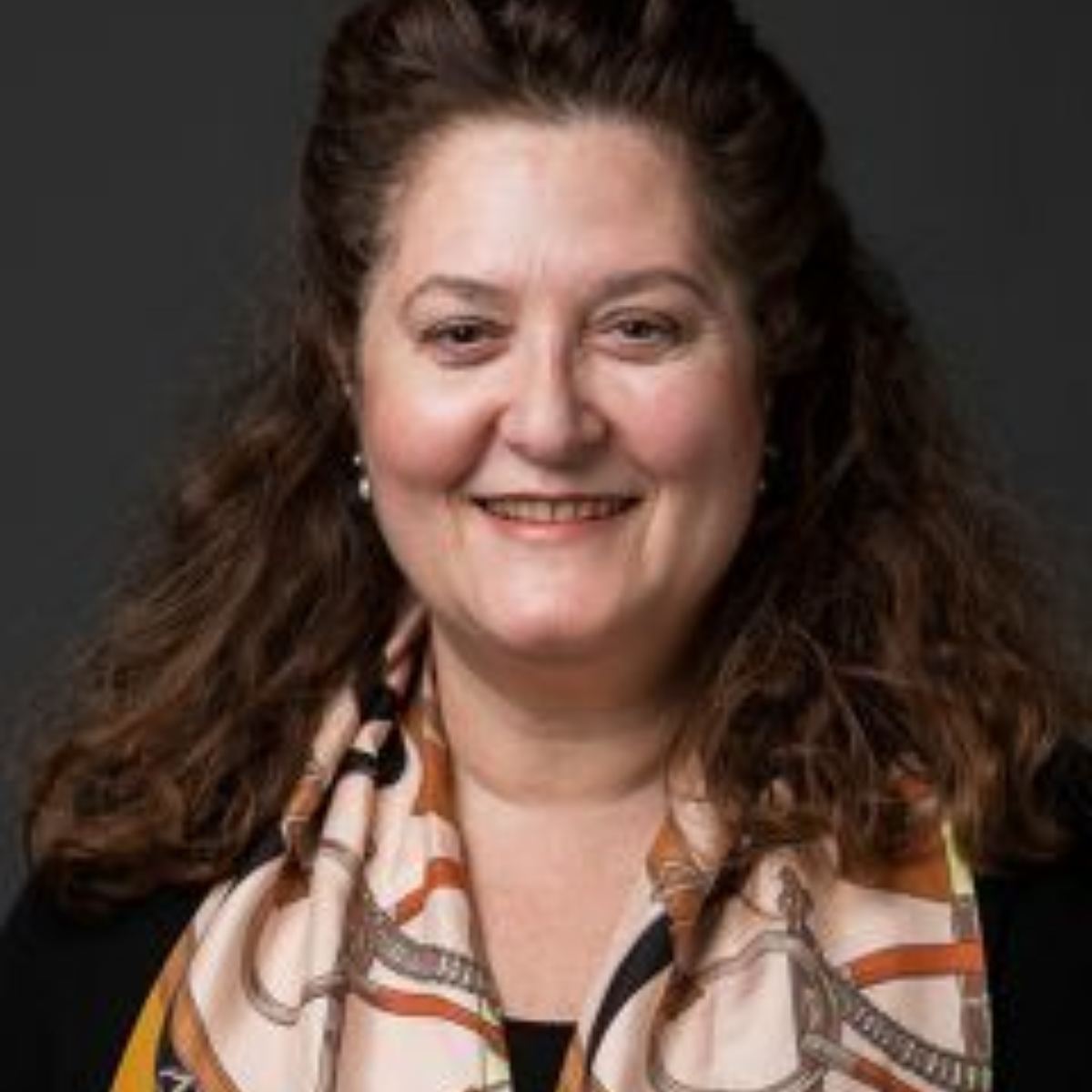Barbie and the Loss of Paradise

A Conversation with
Claudio Burgaleta, S.J.
Superior, Boston College Jesuit Community
M. Cathleen Kaveny
The Darald and Juliet Libby Professor in Theology and Law, Boston College
Elizabeth Prodromou
Visiting Professor, International Studies, Boston College
Moderated by: Mark Massa, S.J.
Director, Boisi Center for Religion and American Public Life
Date: Monday, September 25, 2023
Time: 4:00 - 5:30pm
Location: Stokes Hall S195
The Barbie movie was a classic summer blockbuster, breaking box office records in the United States and around the globe. It seems to have nothing to do with theology. But as Cathleen Kaveny and Elizabeth Prodromou will discuss, bringing a theological lens to Barbie can be both illuminating and enjoyable.

Claudio M. Burgaleta, S.J. was born in Havana, Cuba and came to the United States in 1969. He grew up in Essex County, N.J., and after two years at Columbia University, entered the then New York Province of the Society of Jesus at St. Andrew Hall, Syracuse, N.Y. He completed his collegiate studies as a Jesuit at Fordham University, the University of Madrid (Complutense), and Comillas University, also in Madrid. As part of his Jesuit formation he taught at St. Peter’s Preparatory School in Jersey City, N.J. and then obtained M.Div. and STL degrees at the Jesuit School of Theology at Berkeley, California in preparation for ordination. He was ordained to the presbyterate in June, 1992, and that fall began doctoral studies in theology at Boston College. He completed his Ph.D. in historical and systematic theology in December, 1996.
Fr. Burgaleta has taught theology at St. Peter’s and Fordham Universities, worked in Jesuit formation, and Latino Ministry. He is the author of several books on Jesuit history, theology, and Latino pastoral ministry. From 2016-2022 he was superior of the St. Peter’s Jesuit Community in Jersey City, N.J., and represented the U.S. East Coast Province of the Jesuits at the 71st Congregation of Procurators in Loyola, Spain in May, 2023. Since July 31st, 2023, Fr. Burgaleta serves as the superior of the Boston College Jesuit Community (St. Mary’s Hall).

M. Cathleen Kaveny is a scholar who focuses on the relationship of law, religion, and morality, serves as the Darald and Juliet Libby Professor at Boston College, a position that includes appointments in both the department of theology and the law school. She is the first faculty member to hold such a joint appointment. A member of the Massachusetts Bar, Kaveny clerked for the Honorable John T. Noonan Jr. of the U.S. Court of Appeals for the Ninth Circuit and worked as an associate at the Boston law firm of Ropes & Gray in its health law group. She was the 2018-2019 Cary and Ann Maguire Chair in Ethics and American History at the Kluge Center of the Library of Congress. Kaveny has published four books and over a hundred articles and essays, in journals and books specializing in law, ethics, and medical ethics. She serves on the masthead of Commonweal as a regular columnist. Her books include Law’s Virtues: Fostering Autonomy and Solidarity in American Society (Georgetown University Press, 2012); A Culture of Engagement: Law, Religion, and Morality (Georgetown University Press, 2016); Prophecy without Contempt: Religious Discourse in the Public Square (Harvard University Press, 2016); and Ethics at the Edges of Law: Christian Moralists and American Legal Thought (Oxford University Press, 2018). Kaveny regularly teaches contract law to first-year law students. She also teaches a number of seminars which explore the relationship between theology, philosophy, and law, such as “Faith, Morality, and Law,” “Mercy and Justice,” and “Complicity.” Kaveny is the chair of the board of trustees of the Journal of Religious Ethics. She has been the president of the Society of Christian Ethics, the major professional society for scholars of Christian ethics and moral theology in North America. It meets annually in conjunction with the Society of Jewish Ethics and the Society for the Study of Muslim Ethics. Kaveny has served on a number of editorial boards including The American Journal of Jurisprudence, The Journal of Religious Ethics, the Journal of Law and Religion, and The Journal of the Society of Christian Ethics. She has been a visiting professor at Princeton University, Yale University, and Georgetown University, and a visiting scholar at the University of Chicago’s Martin Marty Center. From 1995 until 2013 she taught law and theology at the University of Notre Dame, where she was a John P. Murphy Foundation Professor of Law.

Elizabeth H. Prodromou is a visiting professor in the International Studies Program at Boston College and non-resident senior fellow at the Atlantic Council’s Eurasia Center. Her research interests and policy work focus on the intersections of geopolitics, religion, and human rights, with particular focus on the Eastern Mediterranean and Middle East. Prodromou served a diplomatic appointment on the U.S. Commission on International Religious Freedom (2004-2012), and she was also a member of the U.S. Secretary of State’s Religion & Foreign Policy Working Group (2011-2015). The author of two edited volumes, many book chapters, and widely published in academic journals, her most recent publication deals with Russian influence-building through religious soft power, in The Kremlin Playbook 3: Keeping the Faith. She has taught at Tufts University, Boston University, and Princeton University, and she was a consultant member of the delegation of the Ecumenical Patriarchate at the Holy and Great Council of the Orthodox Church (2016). She holds a Ph.D. and an S.M. in political science from MIT. She is married to Dr. Alexandros Kyrou, and they are happy parents to their daughter, Sophia.
Ibrahim,Samantha. “How Greta Gerwig’s ‘Barbie’ was Influenced by her Catholic School Roots,” New York Post, 2023.
Kay, Jermey. "Barbie's Greta Gerwig Breaks Opening Weekend Box Office Record for Female Director." Screen International, 2023.
Naylor, Robert. "Why Barbie and Not Oppenheimer: A Film Review of Barbie, Directed by Greta Gerwig." Endeavour, New Series 47, no. 3, 2023: 100873–100873.
Pustay, Steven. The Digital Logic of Death: Confronting Mortality in Contemporary Media, 1st ed. New York: Bloomsbury Academic & Professional, 2021.
Rogers, Mary F. Barbie Culture, London; Thousand Oaks, Calif.: SAGE Publications, 1999.
This conversation with theologian Cathleen Kaveny was inspired by her National Catholic Reporter article: “Barbie Land and losing paradise: Theologian muses on this summer's blockbuster.” While Kaveny’s article will be the basis of this event's presentation and discussion, there are other takes on this movie that are worth a read. Drawing on complementary themes as Kaveny, Santiago Ramos wrote an article in Commonweal titled “Barbie the Existentialist.” He describes that while cloaked in pink, the film’s deeper meanings are spurring philosophical discussions about death and existential meaning. Ramos notes the way the Barbie movie reflects humanity’s denial of death, and how the existential questions the movie raises are akin to those of many philosophers. He even predicts that this film will soon be assigned in intro-to-philosophy classes. Both Ramos and Kaveny’s reflections suggest that the Barbie movie may endure as a conversation partner in academic, religious, and philosophical spaces.
On September 25, 2023, Boisi Center director, Mark Massa, S.J., moderated a panel discussion titled Barbie and the Loss of Paradise. Respondents included Claudio Burgaleta, S.J, Superior of the Boston College Jesuit Community, M. Cathleen Kaveny, the Darald and Juliet Libby Professor in Theology and Law at Boston College, and Elizabeth Prodromou, visiting professor of International Studies at Boston College. The panel was inspired by Kaveny’s recent article in the National Catholic Reporter titled, “Barbie Land and Losing Paradise: Theologian Muses on This Summer’s Blockbuster.” The respondents engaged in a rich conversation that used theological lenses to interpret Barbie and its cultural significance.
The conversation began with Massa asking the basic yet essential question: how is Barbie theology? Kaveny responded that Barbie, like theology, is trying to make sense of the world. It explores our temptations, flaws, desires, and questions about the meaning of life. Burgaleta noted that Barbie explores how we can become more authentically human and less “fake,” which is particularly important as this panel occurred on the eve of the Synod on Synodality, which aims to create a more human and inclusive church. Burgaleta also added that he believes the film is a work of theological anthropology, as it makes statements about what it means to be human and centralizes questions about freedom and authenticity. The respondents also addressed how Barbie examines gender stereotypes, agency, moral responsibility, the debate as to whether Barbie was born free of original sin, and the recurring metaphor of the fall.
The panel then transitioned to discussing key moments and memorable lines from the Barbie movie. Prodromou noted the film’s recurring focus on distinguishing secular and sacred beauty. The movie suggests that real beauty is not plastic, as portrayed at the beginning of the film in Barbie Land. Rather, beauty exists in the real, complex world; it exists alongside of and is intertwined with the realities of aging and death. This notion of beauty is illustrated in a scene where Stereotypical Barbie gazes with wonder at an elderly woman. Barbie says, “You are beautiful,” and the older woman replies, “I know it.” Prodromou remarked on a lesson from this scene: “Beauty is seeing with the heart.”
The event concluded with a question and answer session. One student asked if the respondents believed the film intended to critique meliorism in modern society. The student hypothesized that though humans continue to strive to create utopian or heavenly societies on Earth, we are ultimately unable to achieve perfection, and this is represented in the film through Barbie’s “fall.” Prodromou’s response seemed to agree with the student’s analysis. She also indicated that social perfection was never even achieved in Barbie Land, as the “Kens” could not find full flourishing in its seemingly flawless society. Many of the aforementioned questions, themes, and theological threads will continue to be explored in an upcoming Boisi podcast conversation between Massa and Kaveny.

